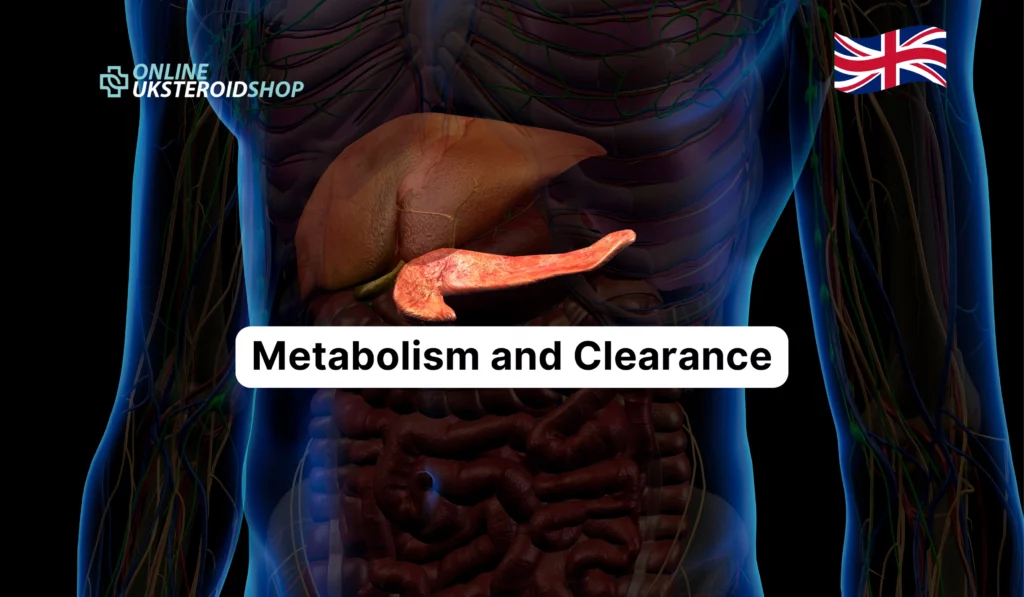What are the potential risks and benefits of injectable and oral steroids?
Steroid effects produced by the different routes of administration (intramuscular and oral administration) differ regarding treatment outcomes (an effect varies). In postulating with injectable steroids, the faster onset of action, in general, is more as a result of direct delivery into the bloodstream, which is beneficial for conditions where immediate relief or management of symptoms is needed.
Nevertheless, swallowed steroid preparations move more gradually through the gastrointestinal tract and cause more slowness in the relief of the symptoms. The type of steroid compound and the therapeutic target steroids might be intended for will also influence the efficacy of those routes of administration.
Comparison Between Oral Vs. Injectable Steroid
-
Absorption and Bioavailability:
The way steroids are administered, either via the oral route or via intramuscular injection, greatly determines how they are subsequently absorbed and utilized by the body. Namely, the injection instead of the digestive tract allows for these steroids to bypass the digestive system and get absorbed directly into the bloodstream where they have higher blood availability compared to oral steroids.
However, liver first-pass metabolism through oral means can reduce their bioavailability which is one of the disadvantages. For example, the structure of steroid matters together with the formulation used and individual patient character can affect the absorption of active substances.
-
Onset and Duration of Action:
Routes of steroid administration should be fine-tuned not only depending on the period of active action but also when the duration of it is in question. ‘Injectable steroids’ are generally fast in action, placing the steroid directly into the bloodstream and acting its effect quickly.
On the bright side, injectable steroid provides the best injectable steroid cycle for muscle gain and also sudden development mostly seems something positive compared to the cases of acute conditions or immediate symptomatic relief. In addition, steroids may have a longer-lasting effect or work in the body when injected subcutaneously compared with when taken orally, so patients may require taking them less frequently and adhering to the prescribed medication regimen better.
-
Metabolism and Clearance:
Post-administration steroids undertake the metabolism and excretion which depend on the way of administration. Injectionation of anabolics is usually cleared and released from the body even slower than orally administered anabolics resulting in a prolonged action period.
In contrast, the metabolism of oral steroids is, however, mainly affected by factors like liver efficiency and digestive system disorders which, in consequence, may affect the rate at which they are cleared. It is essential to comprehend the metabolism and excretion rate of steroids in the process of setting up dosing regimes aimed at reducing the possibility of negative effects.
-
Systemic Effects:
Both oral and injection steroid treatments may have systemic effects on several different physiological processes which can be outside the system range for which they were administered. The long-term consequences may consist of immunosuppression, disturbance of glucose metabolism, alteration of the levels of electrolytes, and osteoporosis.
-
Local Effects:
Intravascular steroids could produce local effects at the site of attraction, such as pain, inflammation, or tissue deterioration. Interestingly, this kind of reaction may be temporary being made less painful and dangerous with proper injection skills and area rotation. But the risk of gastrointestinal side effects can be prominent in the case of oral steroids as they may cause nausea, vomiting, dyspepsia, and even peptic ulcers.
Self-implications of these effects occur when steroids are in direct contact with gastrointestinal mucosa. As in ensuring the patients are fully educated and their responses to steroid therapy are carefully monitored, and effective treatment regimen to manage and reduce local and gastrointestinal adverse effects associated with steroids.
-
Risk of Infection:

Factors Influencing Steroid Administration Method:
- Declaration of its widespread and timeliness.
- A prompt timeframe to make the intended effect of the medicine as soon as possible.
- Patient preferences regarding treatment
- Drug tolerance and harm degree of administration way are the key factors.
Considerations for Steroid Use:
- Emergency clients who have a chronic disease must still utilize systemic drugs to bring forth quick relief.
- Oral steroids even though at times adverse effects could be more serious and prolonged, might turn out to be easier to manage for long-term treatment.
- There will be some patients who might prefer steroid tablets for their potential to cause manageable steroid injection side effects.
Healthcare Provider and Patient Collaboration:
- The healthcare provider weighs the patient’s medical condition next to the patient’s preferences and risks when making treatment decisions.
- Collaborative action with people to decide the most befitting treatment procedure is practical.
-
Gastrointestinal Tolerance:
A steroid well tolerated by the GI tract is a drug that can be used by a patient without induction of major adverse GI effects.
Vulnerability to Side Effects:
Some patients could suffer from GI side effects from corticosteroids if they are given in intra-nasal or intra-ocular form, and these could include stomach pain, bloating, and diarrhoea discomfort.
Management Strategies for GI Tolerance:
- Administration of the prescribed drugs.
- For the treatment of upper gastrointestinal tract infections, enteric-coated formulations that minimize mucosal irritation will be used.
- Storing steroids during meals to prevent abdominal pains consequently.
Importance of Patient Education:
Showing patients how to detect and handle GI side effects from steroid intake is one of the main tasks to do to ensure their health.
-
Patient Compliance:
The concept of patient compliance implies a certain degree of the patient following the doctor’s recommendations on what treatment plan to follow. Prescription of injectable and oral corticosteroids, including pain management and ease of access, can have an impact on patient compliance. Oral steroids could be easily administered in some cases by patients with the help of their own and they do not need any professionals’ assistance.
Nevertheless, sticking to regimes of oral steroids is difficult as it is accompanied by side effects in the digestive system such as flatulence and nausea, frequent dosing, and the necessity of taking the medicine on time. Injectable steroids, although needing to be administered by a healthcare provider, might be beneficial to patients who simply fail to comply with taking them. So, for a particular group of people probably, it would be user-friendly.
-
Individualization of Treatment:
Individualizing therapeutic approaches includes making treatment arrangements that are responsive to the peculiar needs and circumstances of individual patients. Customers need to take into account the form of steroids which can range from injectable to oral forms while choosing a type of steroid during their therapy. Considerations like patient wishes, background status, presence of other diseases and specific reasons for the prescription of steroids should all be weighed.
Let’s Wrap Up!
Assume, for instance, patients who have a history of GI problems than os swallowing impediments may be injected with steroids to keep away the potential gastrointestinal side effects. Moreover, in this category of patients, who need rapid-acting or precise dosage action, is possible the several to use injectable ones.
On the other side, people who give more importance to being in full control of their medication may prefer oral steroids rather than having steroid injections in knee, even though they might experience gastrointestinal negative effects. By applying individualized treatment techniques healthcare professionals can adjust the therapy along with the patient’s improvement, and this way they can achieve better outcomes and patient satisfaction while minimizing risks and improving adherence to steroid therapy.
Oral Steroid injection price may vary, you can check our website for it!
Frequently Asked Questions
1: How long is immune system compromised after steroid injection?
The level of part which subcutaneous leads or pills stay in the body depends on several factors, including the identical disorder in the question, the person’s reaction to therapy, and also overall pharmacokinetics of these drugs.
2: What are the main differences in side effects between injectable and oral steroid administrations?
Unlike oral steroids which may involve gastrointestinal adverse effects such as nausea, vomiting, indigestion, and stomach ulcers, there is no concrete evidence of most of these risks. Injectable and oral steroids are capable of having negative side effects such as immunosuppression, osteoporosis, and metabolic disorders if they are used for an extended period.
3: How should I choose between injectable and oral steroids for my condition?
Whether the patient will take an injection of steroids or an oral steroid largely depends upon some things like the extent of the disease and how long it lasts, how quickly the condition requires the effectiveness of the drug, patient preferences, and drug tolerability, and the inherent risks of the two ways of administration.
4: How much does a steroid injection cost privately uk?
It depends on the area and website you are buying. Prices for each steroid may differ from seller to seller a little bit. It’s always best to look for a comparison from different websites before making a purchase.





